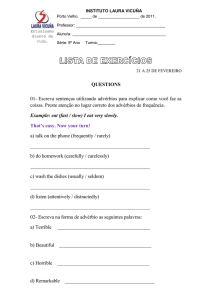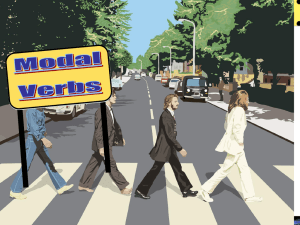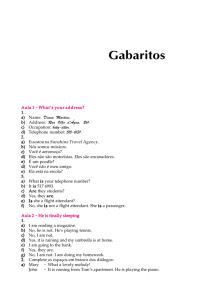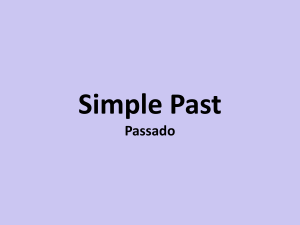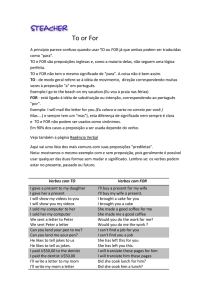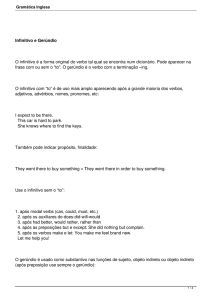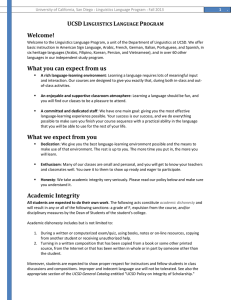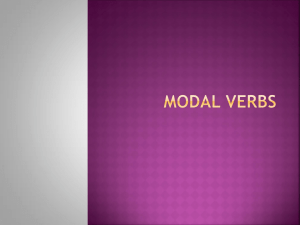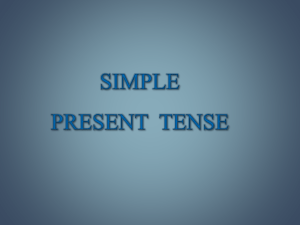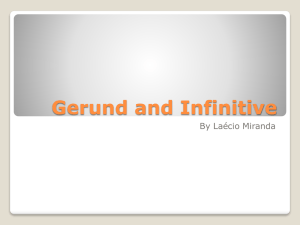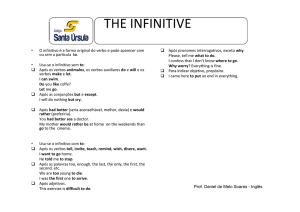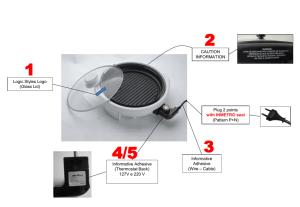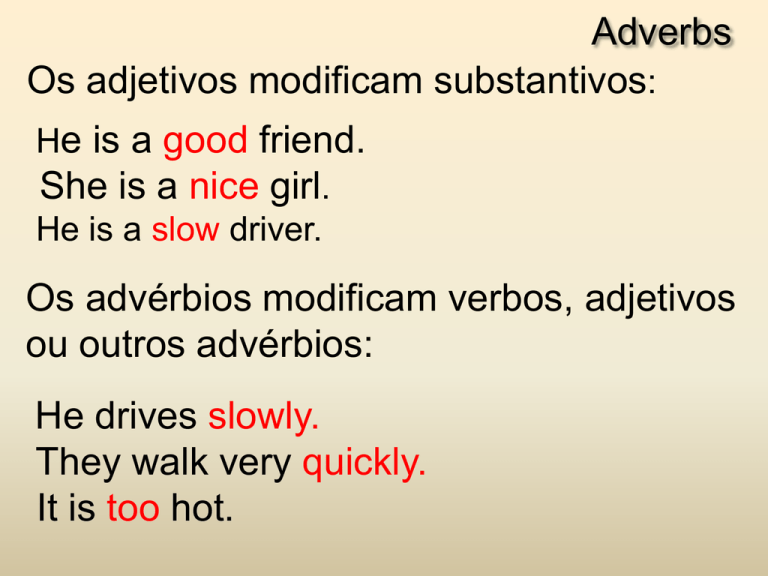
Adverbs
Os adjetivos modificam substantivos:
He is a good friend.
She is a nice girl.
He is a slow driver.
Os advérbios modificam verbos, adjetivos
ou outros advérbios:
He drives slowly.
They walk very quickly.
It is too hot.
Adverbs
Observe a mudança na grafia dos adjetivos
quando transformados em advérbios:
easy – easily
gentle – gently
true – truly
full – fully
quick - quickly
loud – loudly
week – weekly
slow – slowly
enthusiastic - enthusiastically
Adverbs
Adverbs
Alguns advérbios têm forma própria, pois
não são formados a partir de outras
palavras:
now
here
often
yesterday
seldom
almost
Adverbs
Advérbios e locuções adverbiais podem
expressar:
Modo [ manner = quickly, slowly, gently etc. ]
They speak quickly.
Lugar [place = here, there, in the park etc. ]
He is not there.
Tempo [time = now, today, in the morming etc.]
They are studying now.
Adverbs
Advérbios e locuções adverbiais podem
expressar:
Grau ou Intensidade [degree; intensity ]
Really, very, too, quite, so, such, nearly, enough
We are very busy.
It is too late.
He is quite late.
Adverbs
Advérbios e locuções adverbiais podem
expressar:
Grau ou Intensidade [degree; intensity ]
enough [suficiente]
Pode ser usado após adjetivos e advérbios:
My brother isn’t old enough to vote.
You aren’t working quickly enough. Hurry up!
Adverbs
Advérbios e locuções adverbiais podem
expressar:
Grau ou Intensidade [degree; intensity ]
enough [suficiente]
Pode ser usado antes de substantivo:
I wanted to buy a new car but I didn’t have
enough money.
Adverbs
Advérbios e locuções adverbiais podem
expressar:
Frequência e Probabilidade [frequency;
probability]
Adverbs
Advérbios de frequência e probabilidade
vêm antes do verbo principal mas, após
verbos auxiliares:
They rarely walk to school.
They have never walked to school.
She probably loves him.
She is probably tired.

